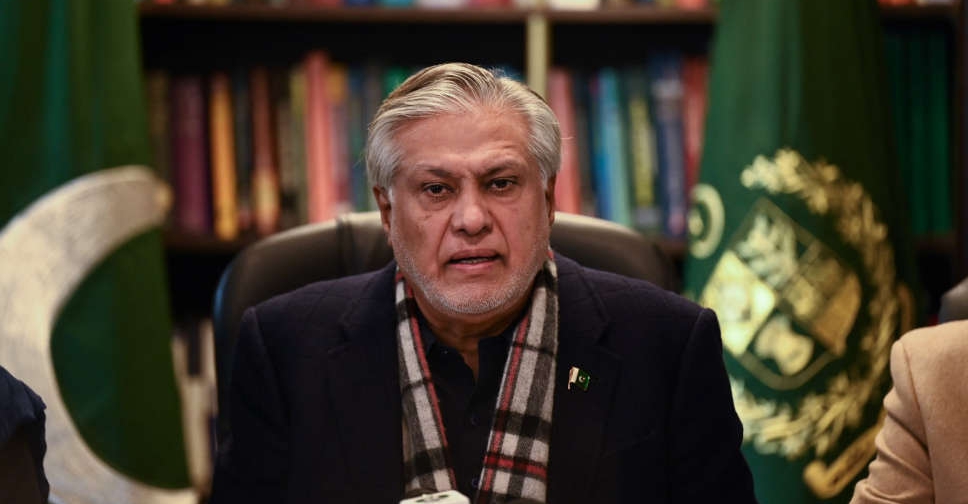
Pakistan has agreed with the International Monetary Fund on the conditions to release about $1.1 billion in critical funding, Finance Minister Ishaq Dar said on Friday, adding that the payout was delayed due to "routine procedures".
Dar was speaking to reporters hours after an IMF mission left Islamabad after 10 days of talks aimed at releasing the funds Pakistan desperately needs to keep its economy afloat.
Payment of the funds, part of a $6.5 billion bailout Pakistan signed in 2019, has been stalled since last December.
"The prime minister has said we're committed," Dar said. "We will implement whatever has been agreed upon between our teams."
"We will try to make sure Pakistan completes its second IMF programme in its history," he added.
The money is necessary to prevent Pakistan from defaulting on external payment obligations, and an IMF deal paves the way for other organisations and governments to provide funds, analysts say. The fiscal adjustments demanded by any deal, however, are likely to fuel record-high inflation, which hit 27.5 per cent year-on-year in January.
The IMF talks were due to end on Thursday, but Dar said they would continue virtually on Monday, with the aim of reaching a staff-level agreement which then needs to be approved by the IMF's head office in Washington before the funds are disbursed.
In a statement, Pakistan IMF Mission Chief Nathan Porter confirmed talks were continuing, adding that considerable progress had already been made.
The IMF funding is crucial for the country's $350 billion economy, which is facing a balance-of-payments crisis with foreign exchange reserves dipping to less than three weeks of import cover. Last week, Prime Minister Shahbaz Sharif called Pakistan's economic situation "unimaginable".
Pakistan has already shifted back to a market-based exchange rate and hiked fuel prices, which are among the conditions set by the IMF.
Asked about other measures, Dar said Pakistan would raise fuel prices in tranches, would not impose a sales tax on petroleum products and that it was considering introducing a new finance bill. He did not give further details.
Dar also said his government would discuss the fund's recommendations about energy sector reforms.
Earlier, finance ministry officials had told Reuters that the government and the IMF were discussing what to do with the energy sector's almost $15 billion debt to the government.
They said Pakistan has submitted a plan to cut the debt in phases though price hikes and dividends from gas companies, but the IMF was demanding a clearer path forward.
In addition to the stalled tranche, another $1.4 billion remain of the $6.5 billion bailout programme, which is due to end in June.


 Nasdaq set to confirm bear market as Trump tariffs trigger recession fears
Nasdaq set to confirm bear market as Trump tariffs trigger recession fears
 Dana Gas and Crescent Petroleum exceed 500M boe in Khor Mor field
Dana Gas and Crescent Petroleum exceed 500M boe in Khor Mor field
 China to impose tariffs of 34% on all US goods
China to impose tariffs of 34% on all US goods
 Shares bruised, dollar crumbles as Trump tariffs stir recession fears
Shares bruised, dollar crumbles as Trump tariffs stir recession fears
 Wall Street futures sink as tariffs fuel recession fears
Wall Street futures sink as tariffs fuel recession fears




